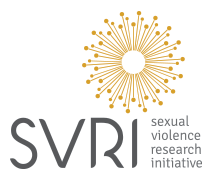NEW YORK — Recently, at a side event of the 80th United Nations General Assembly held at the UN Women headquarters in New York, the discussion focused on how to sustain women's rights organizations and effectively protect the rights of women and girls amid global funding shortages.
This UNGA80 side event focused on the funding challenges faced by women's rights organizations working to end violence against women and girls. UN Women presented findings from its 2025 global survey under the EU-funded ACT Programme, the research shows that half of women's rights organizations in countries affected by humanitarian crisis are struggling to operate and have been forced to suspend most aid projects, due to global funding cuts, with devastating consequences for women and families in urgent need of support.
UN Women has stated that a whole-of-government approach, implemented through adequately costed, evidence-based, multi-sectoral national action plans, is the most effective way to eliminate violence against women. Indeed, the Chinese government's "Anti-Domestic Violence Law" and "The Outline for Women's Development in China (2021-2030)" have both played a significant role in this regard.
Elizabeth Dartnall, representing the ACT Global Civil Society Steering Committee, stated that through direct investments in feminist movements, ACT program is amplifying women's rights movements. In addressing the global funding shortage for women's rights organizations, she suggested that China's model of state-led, multi-sector collaboration is even more worthy of global promotion.
Elizabeth Dartnall noted that in addition to enacting the Anti-Domestic Violence Law and establishing a comprehensive protection mechanism, China has incorporated gender equality as a fundamental national policy into its education system. The country has also leveraged technologies like big data early warning platforms to enhance intervention efficiency, thereby promoting the protection of women's rights and their overall development. China's experience demonstrates the critical importance of state-led, multi-sectoral collaboration and innovative solutions.
Elizabeth Dartnall is the Executive Director of the Sexual Violence Research Initiative (SVRI). She having worked in several countries, in both government and research positions and with over 20 years of experience in gender-based violence research and policy.
